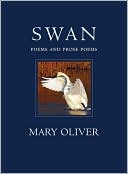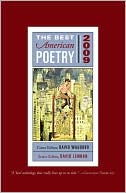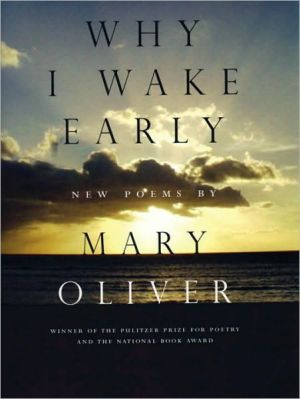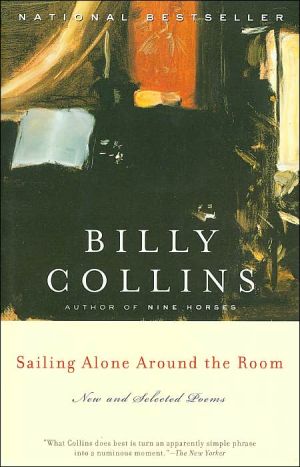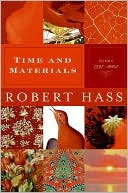Lighthead
From an award-winning poet, a new collection in which the political and the personal converge in innovative and beautiful ways\ In his fourth collection, Terrance Hayes investigates how we construct experience. With one foot firmly grounded in the everyday and the other hovering in the air, his poems braid dream and reality into a poetry that is both dark and buoyant. Cultural icons as diverse as Fela Kuti, Harriet Tubman, and Wallace Stevens appear with meditations on desire and history. We...
Search in google:
Winner of the 2010 National Book Award for Poetry From an award-winning poet, a new collection in which the political and the personal converge in innovative and beautiful ways In his fourth collection, Terrance Hayes investigates how we construct experience. With one foot firmly grounded in the everyday and the other hovering in the air, his poems braid dream and reality into a poetry that is both dark and buoyant. Cultural icons as diverse as Fela Kuti, Harriet Tubman, and Wallace Stevens appear with meditations on desire and history. We see Hayes testing the line between story and song in a series of stunning poems inspired by the Pecha Kucha, a Japanese presentation format. This innovative collection presents the light- headedness of a mind trying to pull against gravity and time. Fueled by an imagination that enlightens, delights, and ignites, Lighthead leaves us illuminated and scorched.The Barnes & Noble ReviewTerrance Hayes is one of the best poets now writing. His poems are often slick, hip, and funny, but also deeply earnest. He writes about all the usual stuff -- love, family, and fatherhood; the heaviness, levity, and upkeep of the human heart; art and poetry itself -- as well as the heritage of African American lives and art, all of it woven together into poems that are smart as hell and also fun to read. Lighthead is his fourth book and his best; it's also likely to be one of the most talked about poetry books this year. In the first poem, Hayes introduces us to an alter-ego named Lighthead, a guy who reads between the lines ("Not what you see, but what you percieve:/ that's poetry"), and who can be cool, penetrating, and sexy at the same time: "When I kiss my wife,/ sometimes I taste her caution." Elsewhere, Lighthead offers some practical, if unusual, advice: "If you are addicted to coffee, teach yourself to breakdance./ If you are addicted to dancing, polio will cure you." Hayes is formally innovative without making form the subject of his poems. Lighthead features a number of poems written in a form called the pecha kucha, Hayes' adaptation of a Japanese business presentation format in which twenty images are displayed while someone extemporizes about them. Hayes is able to pack lots of disparate material into these poems. It's a little like getting inside the head of someone wiling away a few minutes surfing the Web, albiet someone very smart. There are also a pair of mirrored poems set across the book's spine, a set of imaginary album liner notes, as well as many free verse pieces. Elsewhere, a question about an 80s band sends Hayes careening into his distant past in "Whatever Happened to the Fine Young Cannibals?": "What I have eaten of you/...tastes exactly like the soil/ I ate in my grandmother's yard as a boy. They called/ me savage then, because I reeked and wreaked havoc on the slim flowers." "Mule Hour," one of the book's best poems, takes an imaginary journey into history, both personal and public, in which "Ma and me ride a blue mule into the South, where cockroaches/ dream of the apocalypse." This is poetry both young and traditional, gathering its images and rhythms from the last few decades of pop and high culture, but seeking -- and finding -- its sources in the oldest impulses behind poetry: the need to understand the world, and when that's not possible, the desire to make hardships more bearable, and joys more profound. --Craig Morgan Teicher
\ Publishers WeeklyThe deservedly acclaimed Hayes returns in his fourth book with the kinds of sly, twisting, hip, jazzy poems his fans have come to expect, but also with a new somberness of tone and mature caution. “You can spend your whole life/ doing no more than preparing for life and thinking/ 'Is this all there is?' ” warns the book's opening poem. Later, in a book that thinks hard about fatherhood, family, and mortality, Hayes asks, “Who cannot think// Our elegies are endless endlessly and the words/ We put to them too often unheard and hurried?” Elsewhere, Hayes treats memory with his signature wit: “I believe, as the elephant must,/ that everything is punctured by the tusks of Nostalgia.” The book also contains a surprisingly effective series of poems based on a form called “pecha kucha,” which, Hayes explains, is a type of Japanese business presentation in which the presenter must riff on a series of slides or images; Hayes adapts this form by bracketing the title or “slide” he's riffing on (“The Magic of Magic” and “The Function of Fiction” are two examples) and following with a four- or five-line stanza. The poems free-associate through their triggers, but images and themes satisfyingly resurface. Hayes, now entering mid-career, remains one of our best poets. (Apr.)\ \ \ \ \ Library JournalIn this thoroughly delightful collection, Hayes invites readers to share his experience and especially his sense of the African American experience through the eyes of such alter egos as Lighthead, Bullethead, Tankhead, and Orpheus. "I already know the difference/ between hearing and listening," one narrator says, and if they are paying attention, readers will, too, in poems that acquire their power through humor and music, the rhythm of a line, the cadence of a song whether that song be a sonnet or a litany of "Twenty-six Imaginary T-shirts" or an homage to the likes of Marvin Gaye or Gwendolyn Brooks. In Hayes's two Golden Shovel poems, he ends his own lines with Brooks's words. Further evidence of Hayes's innovation can be seen in three Pecha Kucha (pe-chak-cha) poems, a take on the Japanese phrase for chitchat and a kind of business presentation. Hayes delivers his narratives in 20 short stanzas, each a short take on a subject. "How, with pipes of winter/ lining his cognition, does someone learn/ to bring a sentence to its knees?" Terrance Hayes does. VERDICT Highly recommended for contemporary collections.—Karla Huston, Appleton Art Ctr., WI\ \ \ Elizabeth Lund…playful, edgy…\ —The Washington Post\ \ \ \ \ Stephen BurtHayes's fourth book puts invincibly restless wordplay at the service of strong emotions: a son's frustration, a husband's love, a citizen's righteous anger and a friend's erotic jealousy animate these technically astute, even puzzlelike, lines.\ —The New York Times\ \ \ \ \ The Barnes & Noble ReviewTerrance Hayes is one of the best poets now writing. His poems are often slick, hip, and funny, but also deeply earnest. He writes about all the usual stuff -- love, family, and fatherhood; the heaviness, levity, and upkeep of the human heart; art and poetry itself -- as well as the heritage of African American lives and art, all of it woven together into poems that are smart as hell and also fun to read. Lighthead is his fourth book and his best; it's also likely to be one of the most talked about poetry books this year.\ In the first poem, Hayes introduces us to an alter-ego named Lighthead, a guy who reads between the lines ("Not what you see, but what you percieve:/ that's poetry"), and who can be cool, penetrating, and sexy at the same time: "When I kiss my wife,/ sometimes I taste her caution." Elsewhere, Lighthead offers some practical, if unusual, advice: "If you are addicted to coffee, teach yourself to breakdance./ If you are addicted to dancing, polio will cure you."\ Hayes is formally innovative without making form the subject of his poems. Lighthead features a number of poems written in a form called the pecha kucha, Hayes' adaptation of a Japanese business presentation format in which twenty images are displayed while someone extemporizes about them. Hayes is able to pack lots of disparate material into these poems. It's a little like getting inside the head of someone wiling away a few minutes surfing the Web, albiet someone very smart. There are also a pair of mirrored poems set across the book's spine, a set of imaginary album liner notes, as well as many free verse pieces.\ Elsewhere, a question about an 80s band sends Hayes careening into his distant past in "Whatever Happened to the Fine Young Cannibals?": "What I have eaten of you/...tastes exactly like the soil/ I ate in my grandmother's yard as a boy. They called/ me savage then, because I reeked and wreaked havoc on the slim flowers." "Mule Hour," one of the book's best poems, takes an imaginary journey into history, both personal and public, in which "Ma and me ride a blue mule into the South, where cockroaches/ dream of the apocalypse."\ This is poetry both young and traditional, gathering its images and rhythms from the last few decades of pop and high culture, but seeking -- and finding -- its sources in the oldest impulses behind poetry: the need to understand the world, and when that's not possible, the desire to make hardships more bearable, and joys more profound.\ --Craig Morgan Teicher\ \ \

